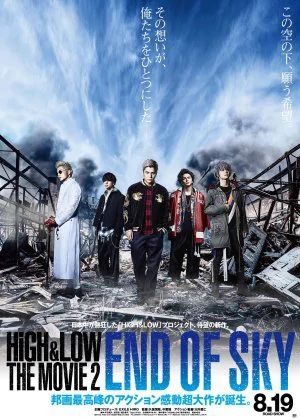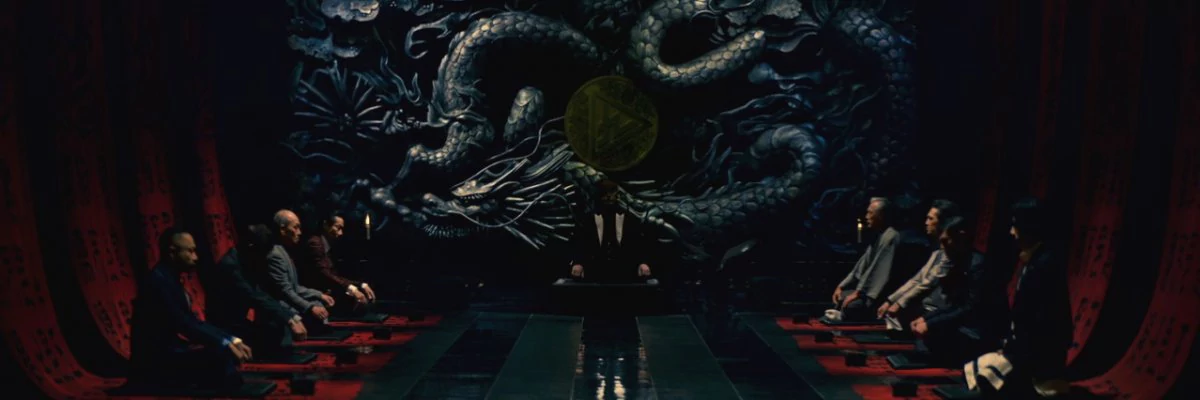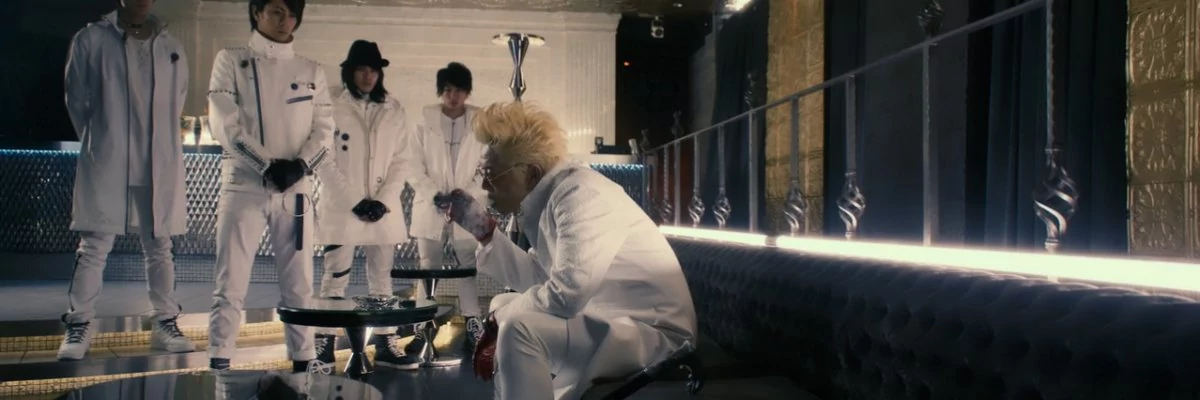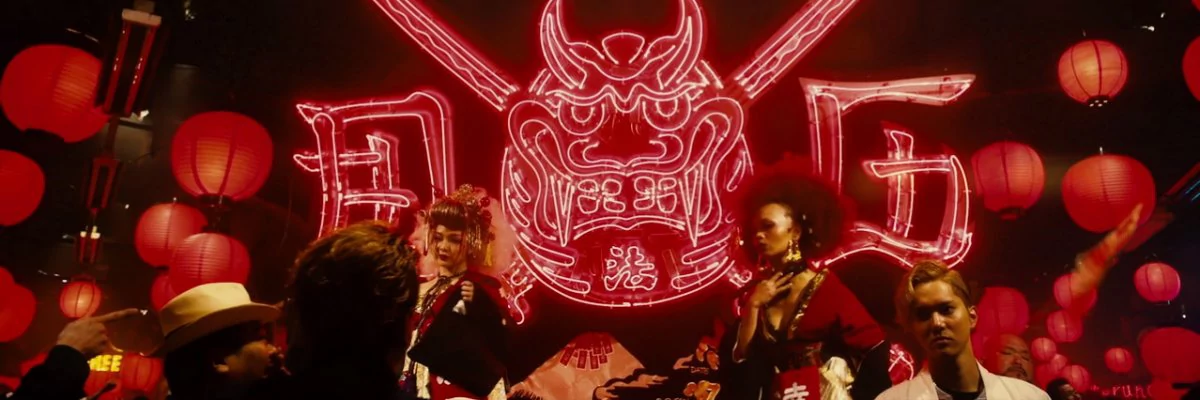High & Low: The Movie 2 - End of Sky

Just two months ago I was knocking the poor (Western) distribution of the High & Low franchise, turns out a little passive aggressive complaining isn't necessarily pointless after all. Shigeaki Kubo's introduction is still missing in action, but at least the main trilogy is complete now. I was genuinely impressed by the first entry, so of course I was eager to catch up with the two follow-ups. What I didn't expect was that High & Low: The Movie 2 - End of Sky would actually top the first film, delivering by far one of the most attractive films in this strange little niche.

The middle parts of trilogies are usually the weakest links. They have to deal with the aftermath of the first film, they're required to set the stage for the finale, and they're expected to offer stand-alone appeal. That's too many responsibilities for one film. The neat thing about the High & Low trilogy is that it's not just a single story arc. There's an overarching story that provides a rough direction to the individual films, but it doesn't necessarily dictate the rhythm and pacing of each film as part of a bigger whole. This is why End of Sky can simply build up towards a sprawling finale without having to worry about toning down the energy levels.
High & Low is both extremely simplistic and terribly complex, depending on how you look at it. The overarching plot is basic and easy to follow, with a clear distinction between the good guys and the bad guys. In that sense, you're never really lost. But once you get down to nitty-gritty it becomes a real clusterfuck, with 9 or 10 unique factions and 3 to 4 key characters per faction spinning a web of crisscross intrigues. I will gladly admit that I couldn't always keep track of all the beef, history and drama between the different gangs, but that never stood in the way of my enjoyment. It's good to know it's there for the people who love to keep track of this kind of thing, but you can just as well ignore most of it.
The story continues where the first film left off. An incriminating USB stick is doing the rounds, but as long as it hasn't gone public the Kuryu group still has a chance of keeping their shady casino plans under wraps. Meanwhile, the SWORD gangs are going about their business and two new violent players enter the battleground. Doubt and the prison gang join forces to help the Kuryu group recoup the lost USB stick. They start by targeting the White Rascals, who don't feel like involving the other gangs. The Hoodlum Squad sees the danger and rallies the troupes, as the White Rascals don't stand a chance going up against their adversaries alone.

This is a film that heavily relies on style. Each gang has its typical look, each character has his specific style within that look and there's plenty of posing going on to show off how cool everyone is. Kubo embraces this and every time a gang or character makes an entrance he's sure to introduce them with the proper panache. It's normal to see this at the start of a film, but Kubo keeps on doing it, to the point where the film even closes with such an introduction. He leaves no opportunity untouched to give each scene some extra flair, playing around with colors, lighting and editing to create something truly special. It's certain to tire out some people, but I just love this kind of unabashed maximalist cinema.
The soundtrack is equally in your face. Each gang has its theme song, ranging from pop, rock, hip-hop to dance. The common element is that each of the tracks is loud and flashy and Kubo has no trouble putting that music front and center. The music itself is a bit too poppy for my taste and I wouldn't have minded some slightly more underground sounds (a film like this could've gotten away with that I think), but the way the soundtrack is used is simply masterful. It brings a lot of extra energy to the film and it just adds to the excessive visual flair already present. The result is a bombardment of the senses.
The size of the cast is immense, which is no surprise considering how many gangs and leaders there are involved. The most remarkable thing is that there isn't even a principal character. Some of the more prominent gang members get more screen time, but there's not one single character for the audience to latch on to. It's a bit of a gamble, but it underlines the insane scope of this project. As for the actors, it's hard to say whether they did a good job. Half of the work is done by the costumes, another third by Kubo's direction, the rest is just getting through the dialogues. They're a memorable bunch though, which is what matters the most.

End of Sky is just incredible vast. Not sure if it's the scope of the franchise, the intense pacing or the endless build-up of intrigue and energy, but it felt like the movie lasted at least twice as long. There's hardly any time for breathers and it's basically just one big lead-up to the finale, with just one additional action sequence in the middle to make it even more intense. People looking for a more traditional and/or evenly paced film will be completely overwhelmed by End of Sky, then again the first film should've scared them away already. That allowed Kubo to go all in, resulting in a film that caters to a very specific niche without having to make any kind of sacrifice or compromise. That's just incredibly rare nowadays.
I expected a simple film that would tie the first and third film together, while trying to jam in a little side story to cover up the fact that this is just an intermediary film. What I got was a sprawling, spirited and loving example of maximalist cinema. Kubo builds upon the previous films, but hardly looks ahead to the third one. End of Sky is a seemingly endless attempt at making every moment bolder, bigger and better than the one that came before, the beauty of it is that Kubo actually succeeds in his mission. It's super niche and I don't expect many people to like this film, but Kubo really made something special here. I'm somewhat apprehensive of the third film now, as this will be near impossible to top.